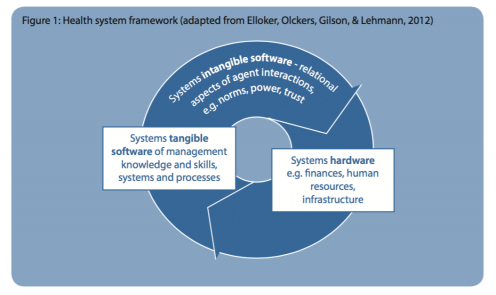Current discussion of resilience in the health sector is characterised by a focus on sudden shocks, such as disease outbreaks; but beyond sudden shocks, organisations and systems face ongoing strain of multiple factors.
RESYST research has shown that district health managers routinely face structural and policy instability, such as: changes in governance structures, payment delays and abrupt and imposed policy directives. They also work with unstable authority delegations, manage unpredictable staff and address changing patient and community expectations. These stresses typically occur at the same time, in the same system, impacting on the same set of people.
Everyday resilience is the ability of health systems to continue to deliver services in the face of constant challenge and strain.
This key findings sheet answers the following questions:
-
What is everyday resilience?
-
How is everyday resilience strengthened?
-
What has RESYST learned about everyday resilience in district health systems?
More information
You can find out more about everyday resilience and the learning sites approach by joining the following sessions we have planned for the fourth Global Symposium on Health Systems research.
-
Tuesday 15 November, 13:30 - 17:00, Meeting room 18 Satellite session: What makes a resilient and responsive health system?
-
Wednesday 16 November, 11:00 - 12:30, Meeting room 8 Organised session: Nurturing health system resilience through everyday leadership and reflective practice: experience from DIALHS and RESYST learning sites

